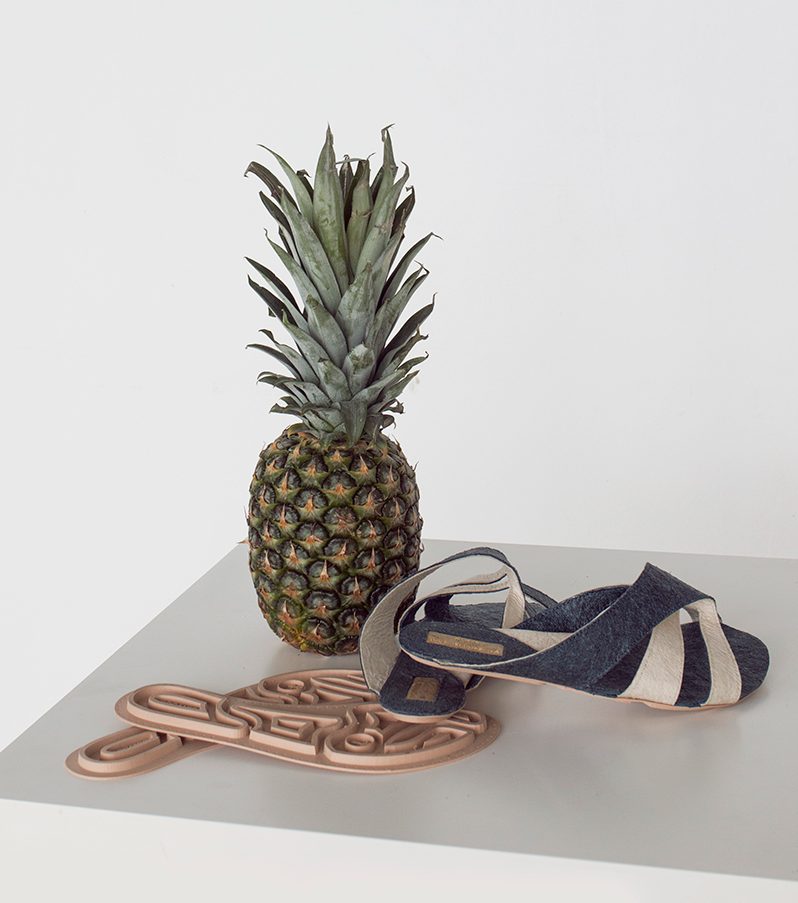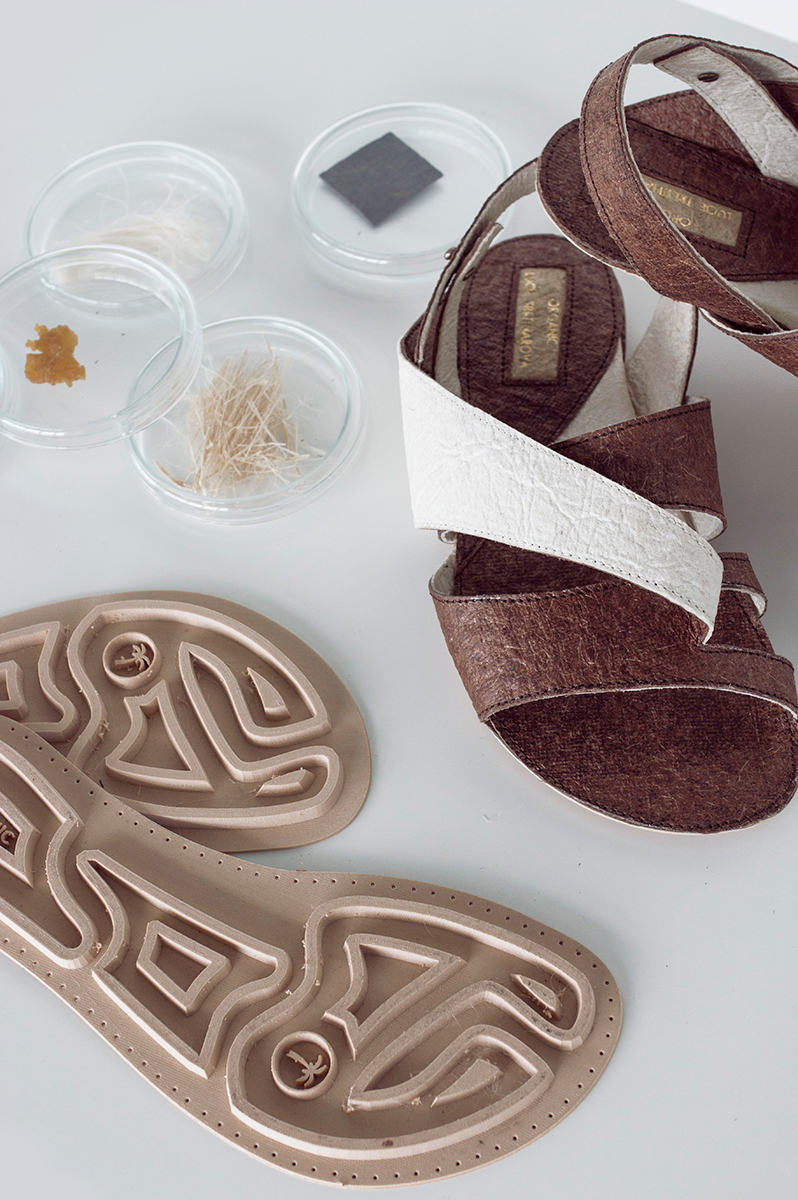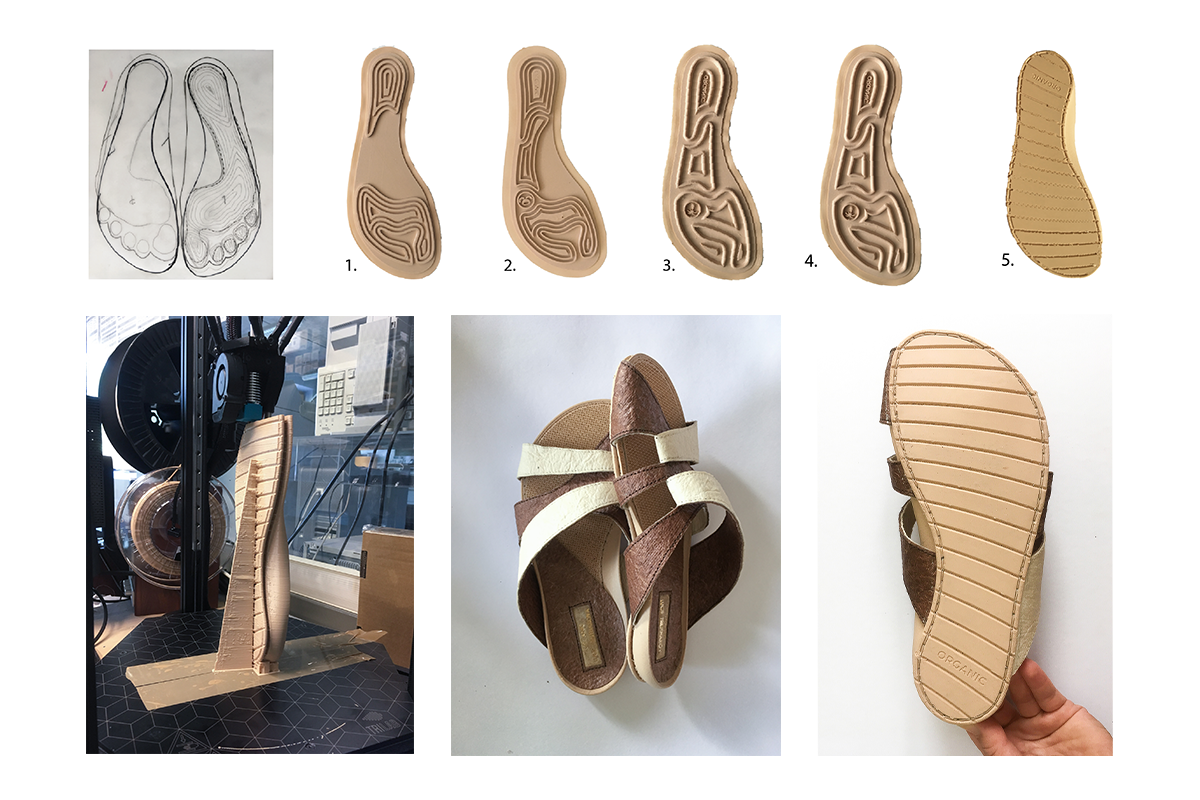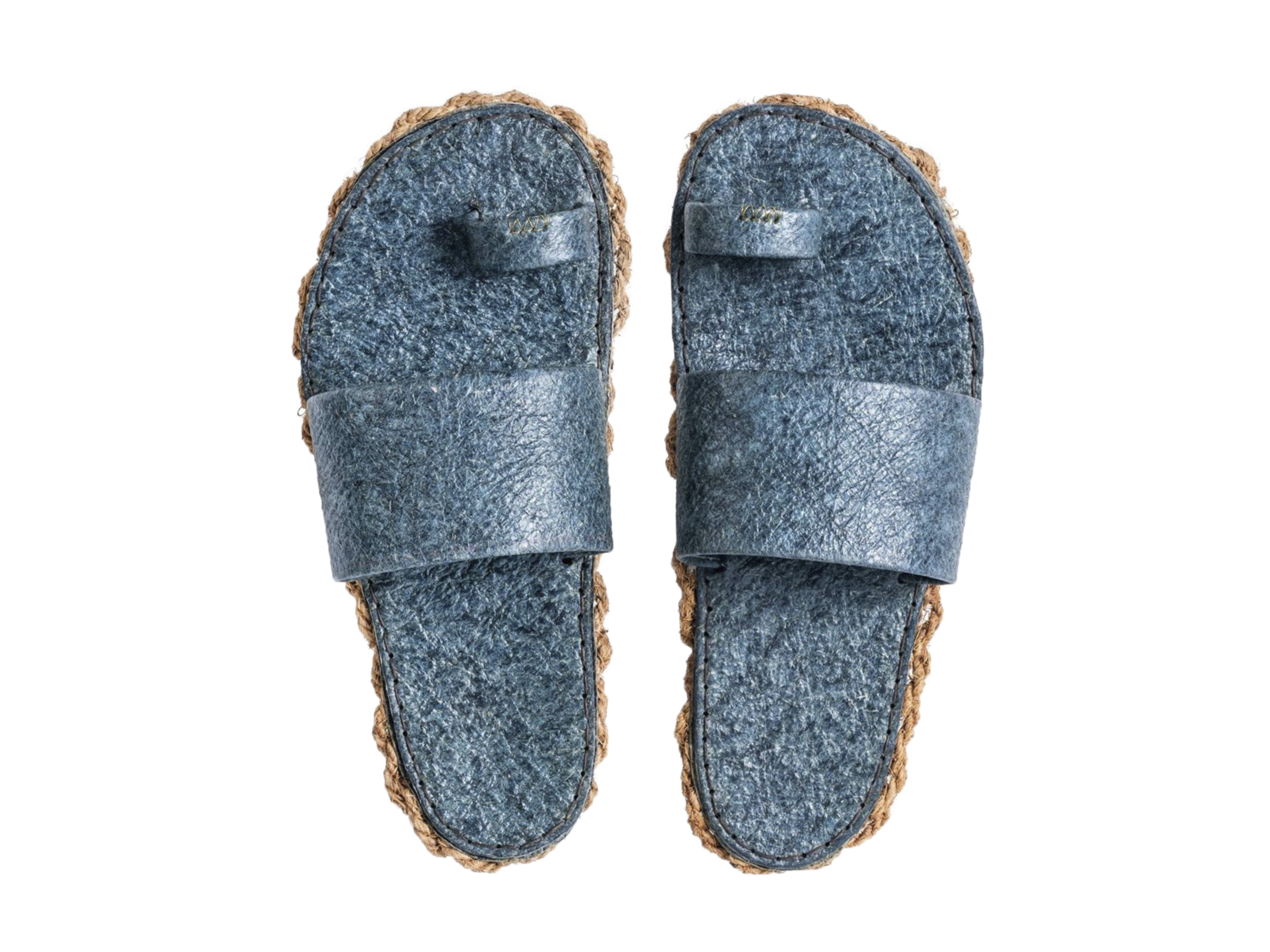Lucie Trejtnarová, a postgraduate student at the Faculty of Multimedia Communication, Tomas Bata University in Zlín (UTB), Czech Republic, and materials manufacturer Fillamentum have developed the Organic 3D printed shoe collection.
As its name suggests, the Organic shoe collection was created in an effort to create sustainable footwear and accessories. The experimental sandal line integrates 3D printed outsoles from TPU-based Flexfill 98A, Malai, also known as coconut leather, and Piñatex, a natural fabric made from pineapple leaves.
“If I buy or make a product, it’s important to know the story behind it, how it can help somebody, and how it could disappear,” explained Trejtnarová.
“We are responsible for each of our steps. Shoes from the Organic collection are based on a simple principle: At the end of their life, you can divide both parts, the upper in a compost and the sole you can recycle, to use it again.”
Organic 3D printed sandals
Trejtnarová’s inspiration for the project came from a trip to Southern India. During an internship at biomaterial design studio Malai Design & Materials, Trejtnarová was introduced to the raw materials Malai that would help form the Organic footwear brand.
Malai is a 100% biodegradable material known to be flexible, durable, and water resistance. It is wholly natural from coconut with a texture comparable to leather. Furthermore, Piñatex, deriving from pineapple leaf fibre, an agricultural waste product, is used as an alternative for leather. With these materials, Trejtnarová chose to create sandals to suit the warm and wet conditions of India.

An early concept for the Organic range then grew out of Trejtnarová’s UTB thesis on the given topic “3D Extravagance.” Trejtnarová explains, “I first got in touch with 3D model making and using 3D printers at the University, [which] was a completely new challenge for me.” Through this contact, she was able to learn how to use a 3D printer, and also make 3D models in Blender. “I continued at the Bezalel Academy of Arts and Design in Jerusalem with a SOLIDWORKS course,” Trejtnarová adds.
Seeking a 3D printable material to support the natural fabrics in her shoe designs, Trejtnarová discovered Flexfill 98A and Flexfill 92A.

3D printed outsoles with Flexfill 98A Powder Beige
Flexfill from Fillamentum offers a range of flexible TPU filaments with high tensile strength, wear performance, and abrasion resistance. Flexfill 98A and Flexfill 92A differ in elasticity with 98A being semi-flexible, however both are moisture sensitive. These materials are designed for dynamically stressed parts, sealings, and shoe insoles, making them a viable candidate for the Organic collection.
As Flexfill 98A is harder than 92A, it was deemed more suitable for the outsole prototypes. An Ultimaker 3 3D printer and Flexfill 98A Powder Beige was then used to produce the final outsoles for the collection.
The recyclability of Flexfill 98A was also an important factor for Trejtnarová. It’s processability allows it to be used again, deterring waste which aligns with the overall Organic concept. “Even Adidas is planning to produce a collection of shoes from thermoplastic polyurethane following the motto ‘made to be re-made’,” Trejtnarová added.
With help from the Fillamentum, Trejtnarová developed the final design of the outsole by slicing a model in two parts. A protective base was then stitched on to support the outsole.

Trejtnarová was pleasantly surprised at the materials capabilities of Flexfill 98A as it was used in both the prototyping and final production phase of the outsoles.
A pilot pair of Malai sandals made in cooperation with Malai Design & Materials are on display at the Victoria and Albert (V&A) Museum in London as part of an exhibition called “Food Bigger than Plate”, which explores unique applications of food for future sustainability. This exhibition concludes on October 20th, 2019.

Learn more about flexible materials from Fillamentum here.
Subscribe to the 3D Printing Industry newsletter for the latest news in additive manufacturing. You can also stay connected by following us on Twitter and liking us on Facebook.
Looking for a career in additive manufacturing? Visit 3D Printing Jobs for a selection of roles in the industry.
Featured image shows the experimental Organic shoe collection, mentored by Eva Klabalova and Ivana Kanovska. Photo via Petr Huser/Fillamentum.

